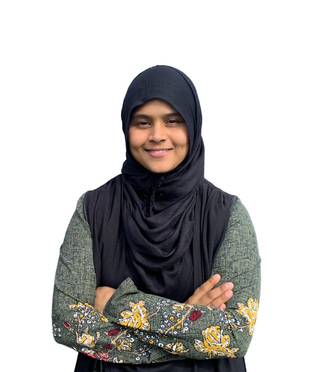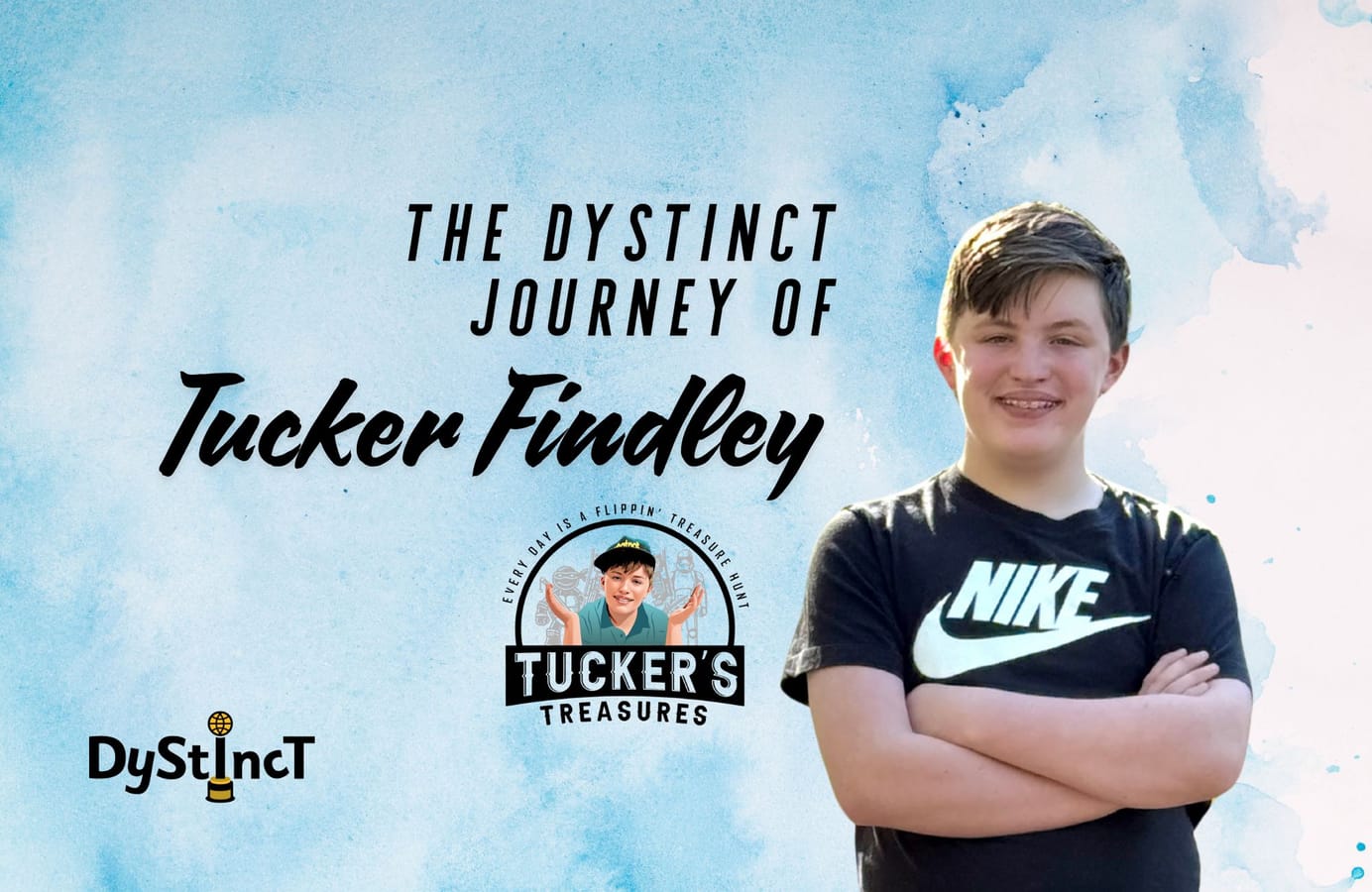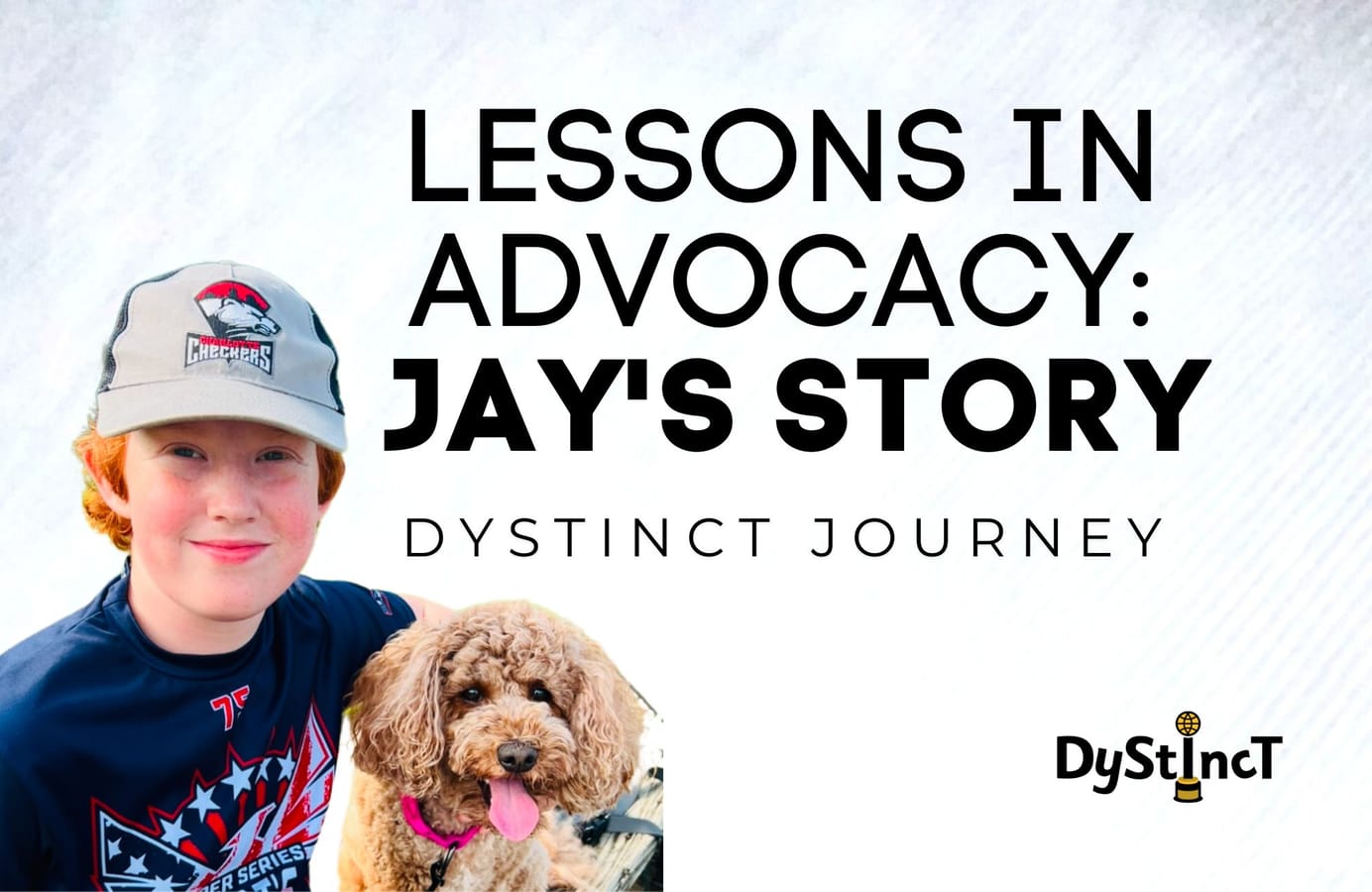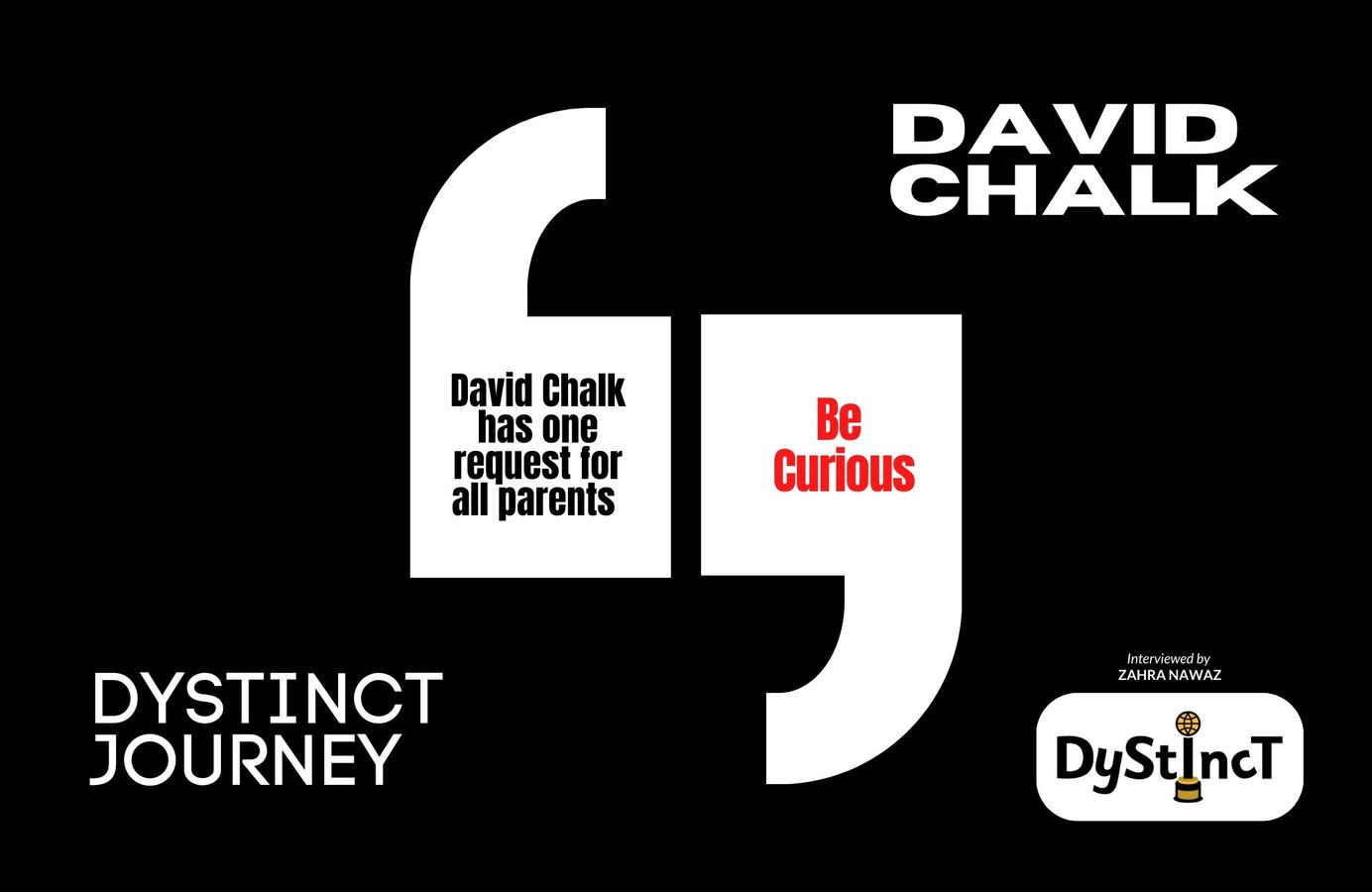
Issue 13: The Dystinct Journey of David Chalk
By 62, David Chalk had seen it all. While David conquered the world, he never managed to achieve the only thing he always had truly wanted-To Read Fluently. In 2021, he finally learned to read and did it on camera for everybody to see.
David is recognised as one of the world's most gifted minds. He is a serial entrepreneur and has launched more than 20 companies in various fields in his successful career spanning several decades. However, behind all that success was a terrified man who felt like a fraud. "I had imposter syndrome. That everything I had done was fraudulent, not criminally fraudulent, but I didn't know how to read. I couldn't spell, and I could hardly write," admits David.
David entered school full of wonder and with a desire to learn like every other child, only to be crushed by a system that wasn't designed to support a struggling child who gave it all he could. At school, David was labelled, bullied, put into a separate section supposedly for "mentally retarded children", and branded a failure but not taught to read. During his early years, David often came home from school crying, humiliated and begging not to go back the next day. However, his mother saw the brilliant child that he was. She reassured him that he was none of the negative labels they gave him at school. Her advice for him was, "Get out of your own way. You are not your mind. You're not what people say. There's this brilliant creativity inside of you. And I believe you are going to do great things."
I got things far greater than that bike.
David's mother's unwavering belief in him was the only bright light guiding him to keep persisting in a lonely dark world where everybody had given up on him. To motivate him to keep trying, his mother promised to buy him every 70s child's dream bike- a Stingray bike with a banana seat and J bars. All he had to do was score a C+. David's mum never got the chance to reward him with that bike, but the experience of trying hard for it year after year taught him an important lesson. "She wanted me to have the Stingray, but I never managed to score a C+. She got me another bike but not the Stingray. But it did more for me in motivation, inspiration, and belief because if I had got the bike, it would've only meant I got a C+. The fact that I didn't get the bike inspired me to never quit. I got things far greater than that bike. The bike represented an objective and just because I didn't get the objective, the beauty was I didn't quit. And that's the lesson I learned."
Renounced to the dumb row and dunce corner of his classrooms, this young child on whom everybody had given up hope wanted nothing more than to learn and prove himself worthy. David loved physics and math and dreamed of becoming an aerospace engineer, an architect, or an airline pilot from a young age. He had repeatedly been told that "he didn't want to learn," but he sincerely did, so in an attempt to kick start his brain, he took on the hardest courses he could all the way up to high school. It was agonising, but he persisted, using just his brute force as his coping mechanism and managed to get out through the other end, still subliterate. "When I entered school, I was happy, fun-loving and had the most positive outlook on life. On my first day, I realised that I couldn't read. Twelve years later, on my graduation day, I was called into the counsellor's office and told, 'David, people like you will have very little opportunity in life and end up in jail or dead on the street.' I was mortified. I had no idea why I was being told this because, throughout my whole schooling, I tried harder than any kid. I left high school believing I was dumb, anxiety raging through my body and nervous as hell," shares David.
The years of persecution and pain he was subjected to at school left him deeply traumatised and uncertain about his future. "The world is not hard to survive in, even if school wasn't a process that you could handle. Why don't you do the things you want to do?" asked David's mum, which made him decide to follow his dreams of becoming an airline pilot. David's excellent spatial awareness and his desire to succeed saw David effortlessly become a pilot flying commercial jets in no time. He did that for a few years until David's curious mind wanted to try something more challenging.
"I was so passionate about math, physics, science, engineering, and architecture. I wanted to go to university. There was a program for mature students at the University of British Columbia. I went in and told admissions that it was very hard for me to write, read, spell and do reports or projects, but I could think conceptually in my mind, and I could invent things. They said, 'Let's just check and see how you are.' So, they gave me a test, and like every other test I had sat before, much of what I knew got locked out of my brain. I froze as I couldn't read and comprehend the questions in their sentence form. But at the bottom, there was a question, and it wasn't that hard to read. It was a complex question, and I scribbled away on it and went back home quite sad about the whole thing. A few months later, a letter came in the mail from the Dean of Engineering saying I had an honorary scholarship to engineering because I had solved a problem that no person applying at the university had ever solved before. But I said, 'thank you, but no thanks,' because I knew there would be no help. I knew that I would fail every subject, and I would be humiliated."
You don't really have anything unless you have both sides, which is the ability to read.
David finally had something he had never had the opportunity to have before. He now had "peace of mind" in knowing that he was "capable of doing something", although not within the education system. So, following that, he decided to become an entrepreneur. He travelled to Australia for a year to get out of his own mind, as his mum often advised him to do and came back with a plan. He bought the first Apple computer and started learning about it himself, never having taken a single lesson in computers before. From there, he went on to build a hugely successful career in computers and many other industries. He had already made millions of dollars in his twenties, but the trauma of the years spent at school and his inability to read always came back to haunt him. "You don't really have anything unless you have both sides, which is the ability to read," shares David.
Diagnosed with PTSD from childhood trauma, he continued to struggle and needed therapy on one side while he was living a public life perceived as wildly successful on the other side. It wasn't until his 40s, when watching an episode of Biography, a TV show that documents the lives of famous successful people, he heard the term dyslexia being used. "That night, Henry Winkler, who played a character called Fonzie on a famous American sitcom in the 1970s, was on the show telling his story that as a child, his life was hell, and it wasn't until his 40s, he discovered that he had dyslexia. As the show went on, I remember sitting on the couch and going, 'Oh my God! This is what I must have.' I had trouble reading billboards, newspapers, and articles, not being able to read books, self-teaching myself, and had to remember things because so much of my brain was being used just to manage the fact that I couldn't read. I had an absolute epiphany, and I went through the phone book, and I found a place not too far away from me that did testing for what they called learning disabilities. I remember getting tested, and when the results came back, the lady said, 'I don't know what to say because you have scored so well, yet you have scored so bad. My first question to you is, how do you survive every day?' My IQ was higher than well above average, but I had scored terribly on reading comprehension, spelling, and writing. They said it was the most challenging case that was recorded that they had ever tested."
It's easy to assume that he got a diagnosis, understood himself better and lived happily ever after. However, getting the diagnosis only sent him into a downward spiral and depression that lasted two years. "You would think that I would jump for joy. Instead, as I was driving home, I could feel my body and mind changing and saying there was something wrong with me. I didn't understand dyslexia. I didn't even know how to spell it. It's a complicated word for someone who can't spell. I still didn't understand my lack of reading because they said nothing about why I couldn't read. All they said was, 'You have a serious comprehension problem'. So, what came to me was, honestly, 'I'm a fraud' and that I happen to be able to do things and convince people and be successful. But it's probably not meant to be."
He managed to pull himself out of the slump and get on with his busy life when the 2007-2008 Global Financial Crisis hit most of his businesses operating in the construction industry. He couldn't help but blame himself for glazing over various clauses in the fine script of contracts and documents, which he could have read with more comprehension had he been a more avid reader. He was declared bankrupt in 2009, and with that came a further four years of depression and therapy. He was trudging through life until a wake-up call in 2020 when his colon ruptured from the stress hormones in his body and nearly cost David his life. He came out to the other end, determined to get his life back in order.
I didn't understand dyslexia. I didn't even know how to spell it. It's a complicated word for someone who can't spell.
David set himself a few substantial goals, and in the process of achieving those goals, he reconnected with Fran Thompson, an old acquaintance who had interviewed him for a documentary about her labelled children many years ago. Fran introduced David to John Corcoran, the author of The Teacher Who Couldn't Read: One Man's Triumph Over Illiteracy. "Fran set up a meeting for me to talk with John. We spoke on the phone, and I think he realised my life paralleled his. John told me, 'I know a woman in Michigan. But it is the middle of Covid, and there's no travel, but if you can find a way to get there, she will teach you to read.' So, I spoke to Fran, and she told me that this woman, Nora Chahbazi, was shooting a documentary and asked me if I was interested in being in it. At this point, it wasn't that I would or wouldn't be in it because inside of me, I knew that I'd come to this realisation that if I was going to learn to read, I would tell the world about it," shares David.
People with learning difficulties can learn. However, the way that reading is taught at schools doesn't work for their brains.
David strongly believes that calling dyslexia a learning difficulty is a misnomer. People with learning difficulties can learn. However, the way that reading is taught at schools doesn't work for their brains. So, difficulty in reading is a symptom that comes about as a result of the flawed education system when people have dyslexia shares, David.
Over the years, David has spent several hours with educators who've used various approaches in an attempt to learn to read, but nothing worked for him as the mere 11 hours he spent with Nora in May 2021. "When I met Nora, I didn't really know what learning to read was about. The reason I agreed to go on a documentary and expose that I couldn't read was because of my nature of wanting to do good, and I needed to do something with my life. I was as vulnerable as anything could be. I felt humiliated, embarrassed, and sick, but like how the Stingray bike was the objective I would work towards, Nora said, 'If you do what I tell you to do, I will show you that your struggle is not because you can't read but because you were never properly taught how to read.' This was a turning point in my life. Nora sat me down and taught me how to break down words in segments rather than recall them from memory, which I was used to doing. I had always memorised everything. So, I was all in. I didn't know what I was in for, but I knew I would do whatever I had to do. On the second day, probably three hours into it, I had this wave go through my body. I can't explain it, but I was starting to read, understand, and comprehend effortlessly, and I was doing it a completely different way than I was used to doing before. I broke down into tears."
After his life-changing experience, David came to the realisation that every decision he had made and everything he had done so far in his life, he had done just to fill a hole in his heart. When he learned to read, he found peace and felt complete at last. "I could be on a desert island and be the happiest person in the world now," shares David. All David now wants is to start a movement to change the way people are taught to read at schools. "There's something wrong with the world that I go into elementary school, the most positive kid in the world, and within one day, I'm humiliated, and I go through 12 years of hell, bullied, beaten up, laughed at, ridiculed to come out the other side and create multimillion dollar companies and be honoured by the very education system that destroyed me. No amount of success could change the past. My humiliation for my whole life is only overshadowed by one thing - My inner turmoil and sadness over the education system. There are administrators, companies, people, and lobbyists all saying how people should be taught, except I'm the damaged outcome of a faulty system. I had my self-worth destroyed, and no amount of money can ever make up for it. What I wish is that they would allow people like me to address the people that decide how children are going to be educated and how they're going to be labelled. Remove the lobbyists, remove the money, remove the power, remove the egos, and for once, think about the children."
I could be on a desert island and be the happiest person in the world now.
David emphasises that he has no attachment to any particular system of reading. He understands that if he had received the same 11 hours of Structured Linguistic Literacy (Speech to Print) intervention in grade one, his life would have been very different. He had everything one could desire for all his life except for joy which he only found at 62 after being taught to read by Nora. He wants people in positions of power to accept that there is a literacy crisis and bring about fundamental changes to the system. He asks for people who make decisions that affect the literacy of all our children to give up their ingrained beliefs and allow all children to find joy in their lives by teaching them the right way to read. "Every parent that wants true joy for their children should give this approach to learning to read a go. When the ground swell starts to really believe it, it doesn't matter if it's only a few people. They can change a nation, just like Gandhi."
David Chalk
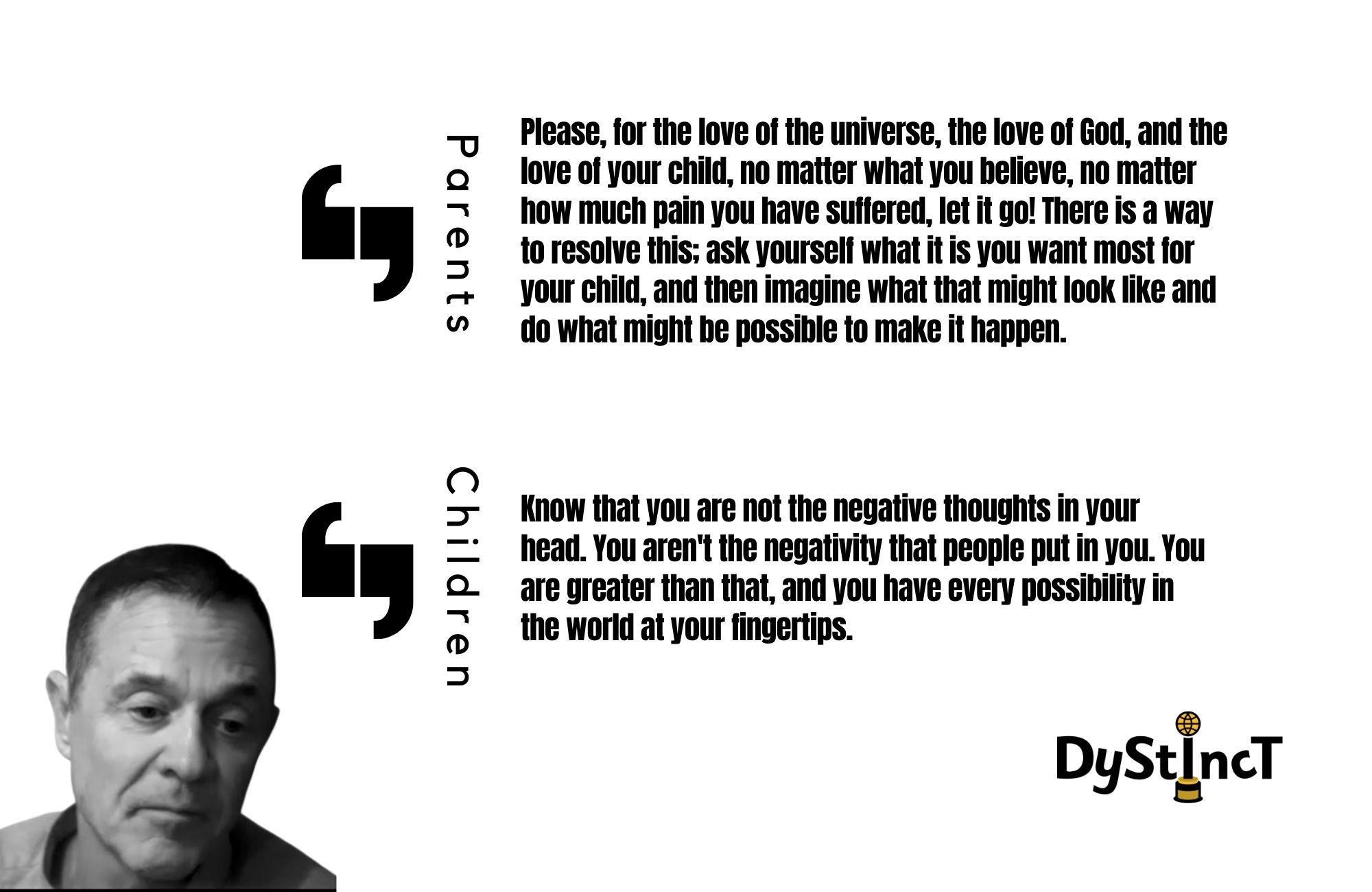
Extracts from Dystinct Magazine













